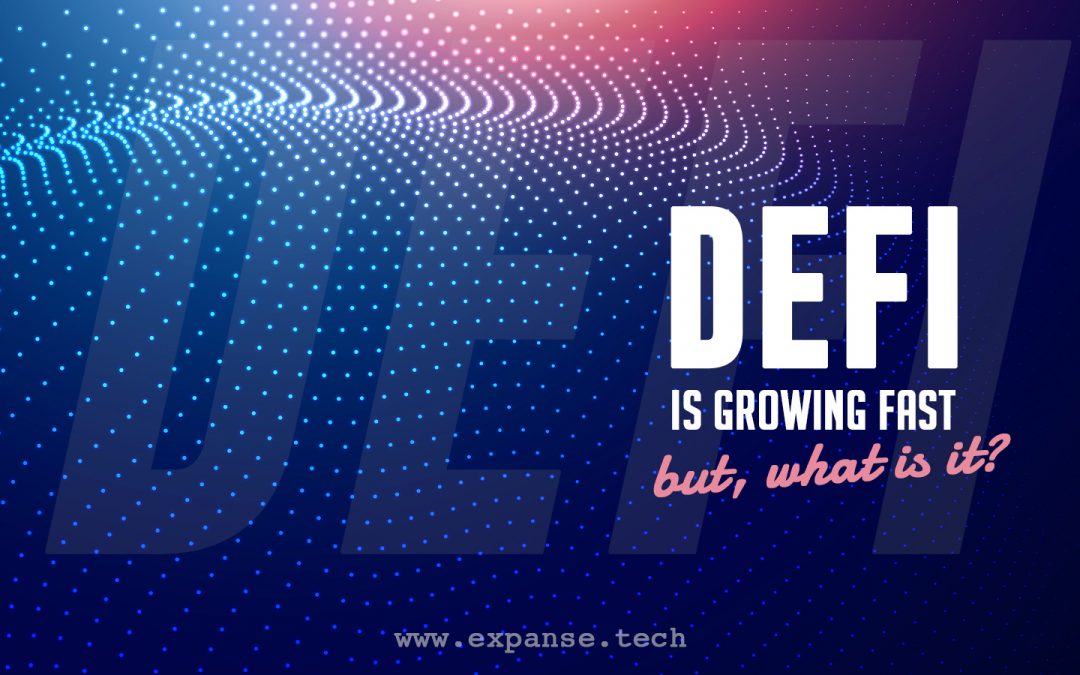DeFi or decentralized finance refers to financial services that use smart contracts, these do not need intermediaries such as a bank or a lawyer and use blockchain technology.
What is defi?
Decentralized finance is basically the fusion of traditional banking services with decentralized technologies like cryptocurrencies and decentralized applications (dApps). In a more technical sense, it refers to the amalgamation of all decentralized products and services such as digital assets, smart contracts, protocols, and applications.
Decentralized finance is trying to promote the principles of self-sufficiency, since its goal is to create a financial system that is open to all and does not ask its users to place their trust in it. This “trustless” functionality of DeFi is its main focus. It allows everyone to take charge of their assets and investments and have a direct voice on what to do with it. The central authorities and the members of the executive board do not decide for you, but the participants of the economic network control the dynamics of the system.
Maximum disruption
One area in which these decentralized applications (dApps) have taken off is trading cryptocurrencies on decentralized exchanges (dexs) like Uniswap. These are completely peer-to-peer, with no company or other institution providing the platform.
Although many of today’s dApps are niche, future applications could have a huge impact on everyday life. For example, you will probably be able to buy land or a house on a DeFi platform under a mortgage agreement whereby you repay the price over a period of years.
The deeds would be symbolically deposited in a blockchain ledger as collateral and in the event that you defaulted on your payments, the deeds would automatically pass to the lender. Because no lawyers or banks would be needed, it could make the entire home buying and selling process cheaper.
Defi advantages
Between September 2017 and the time of writing this report, the total value locked up in DeFi contracts has skyrocketed from $ 2.1 million to $ 6.9 billion. Since the beginning of August alone it has risen by $ 2.9 billion.
DeFi has been the talk of the town for the incredible advantages it can add to today’s economic system. More decentralization will mean that a user will enjoy greater autonomy. The accessibility of the funds and the commercial capacity between users will not depend on any third party. Above all, decentralized economic facilities will bring greater transparency compared to centralized authorities.
- Everything is online and digital
- Edge less
- Everyone is accepted
- Open source code
- Decentralized
Defi disadvantages
It is a well-established fact that cryptocurrencies and digital money are here to stay, and with them, DeFi will continue to grow and expand as well. As of this moment, DeFi products and services are already worth more than $ 500 million. Although very young, the world will see DeFi become a norm in the years to come.
While the advantages of a DeFi space clearly put it in a winning position, there are also some shortcomings of the system. Although these disadvantages are not very serious and are applicable on an individual level. For example, giving users full control of an investment can spell financial disaster and is often a risky idea. In addition, as with all online applications, it opens the doors to cyberattacks that can rob people of their legitimate assets, on the platforms.
Actually, there are some cases where a DeFi platform was hacked or had to shut down due to a bug.

